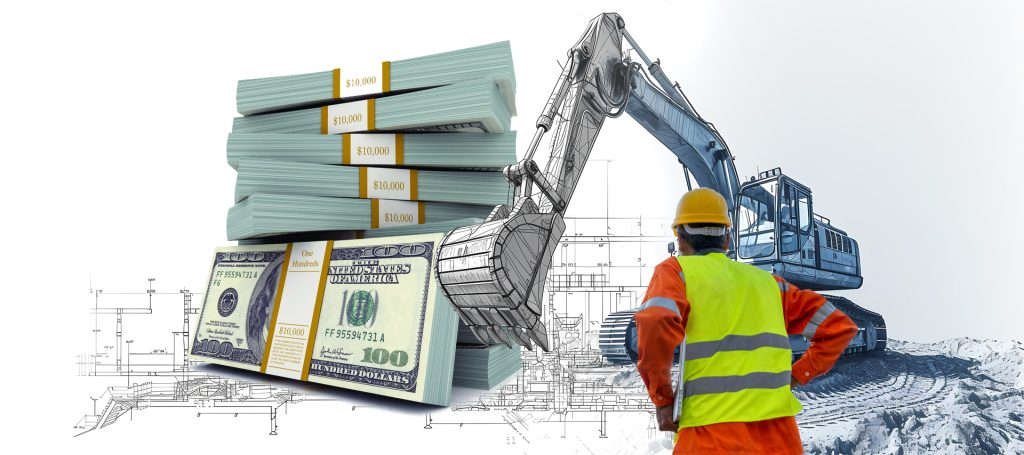The Modern Real Estate Developer: A Strategic Force in Today’s Crazy Market
Behind every thriving neighborhood, commercial center, or urban revitalization effort, there’s a developer driving the vision forward. Real estate development isn’t just about bricks and mortar—it’s about strategy, innovation, and coordination. Developers are the people who bring concepts to life, navigating the complex world of planning, financing, building, and marketing.
Let’s take a closer look at how today’s developers operate, the skill sets they rely on, and what sets them apart in the current market.
Turning Vision into Opportunity
The role of a developer begins well before any dirt is moved. It starts with recognizing opportunity—sometimes in the form of underutilized land, other times in overlooked market trends. Developers combine intuition with data to evaluate market demand, zoning regulations, and community needs. They identify what kind of project fits best in a specific area, whether it’s multifamily housing, mixed-use space, or a commercial complex.
Coordinating Complexity Like a Conductor
Real estate development is a team sport, and developers are the orchestrators. They bring together architects, engineers, legal advisors, contractors, and city officials to align behind a common goal. This role requires top-tier project management skills. Developers oversee budgets, schedules, compliance, and approvals, all while troubleshooting the unexpected. In a sense, they’re the central point of accountability for keeping the project moving forward.
Capital Savvy: Structuring the Financial Engine
None of it happens without capital—which of course is our specialty here at Evoque Lending, and developers are adept at structuring financing that aligns with a project’s risk and return profile. They’re skilled at raising funds through lenders, investors, and equity partners. Understanding construction financing, tax implications, and exit strategies is critical, as is the ability to pitch a project’s value in a compelling way. Developers need to be as financially fluent as they are visionary.

Building the Market Before the Building
Once construction is underway, developers shift gears into brand building and market positioning. Successful projects don’t sell or lease themselves. Developers create targeted marketing strategies, align with brokers, and engage potential buyers or tenants long before completion. This phase demands strong communication skills and a clear sense of the competitive landscape.
Future-Focused Planning
More than just getting a building out of the ground, developers are shaping communities for the future. They must anticipate how demographics, technology, and policy will influence space use years down the line. Sustainability, functionality, and livability are key factors. The best developers create projects that stand the test of time while adding real, long-term value to their surroundings.
Keys to Succeeding in Development Today
Real estate development is both an art and a science—and it’s not for the faint of heart. Those who have excelled in this field… and still do, have to:
- Built a Solid Foundation: Their backgrounds usually reflect a background in real estate, construction, urban planning, or finance, providing a valuable starting point. Quite often, internships and early career roles in related sectors played a critical part and offered invaluable hands-on insight.
- Found Their Niche: Whether it’s adaptive reuse, urban infill, or sustainable design, specializing helps build credibility and attract the right partners.
- Assembled a Reliable Team: Relationships matter. Experienced Developers surround themselves with trusted experts across every phase of development.
- Learned How to Manage Risk Like a Pro: Regulatory changes, environmental hurdles, and market shifts all introduce risk. Smart Developers stay informed and plan with contingencies in mind.
- Stayed Ahead of the Curve: Technology and market preferences evolve quickly. Whether it’s PropTech, prefab construction, or net-zero design—leaders in development never stop learning.

Developer or Contractor? Understanding the Distinction
While both developers and general contractors play pivotal roles in the lifecycle of a project, their functions are distinctly different.
Developers are the originators. They handle the land acquisition, secure financing, lead the design process, and guide the project vision from start to finish. They are responsible for everything from site selection to lease-up or sale.
General contractors, in contrast, are the execution experts. Once the developer’s plans are ready, the GC manages the actual construction. This includes hiring subcontractors, coordinating supplies, maintaining timelines, and ensuring safety and code compliance on-site.
In essence, developers shape the what and why of a project, while general contractors focus on the how.
Final Thoughts
In today’s market, real estate Developers are strategic leaders who bring together vision, capital, talent, and timing to create places where people live, work, and thrive. Understanding the depth of their role offers valuable perspective for investors, partners, and a deep appreciation from us.
